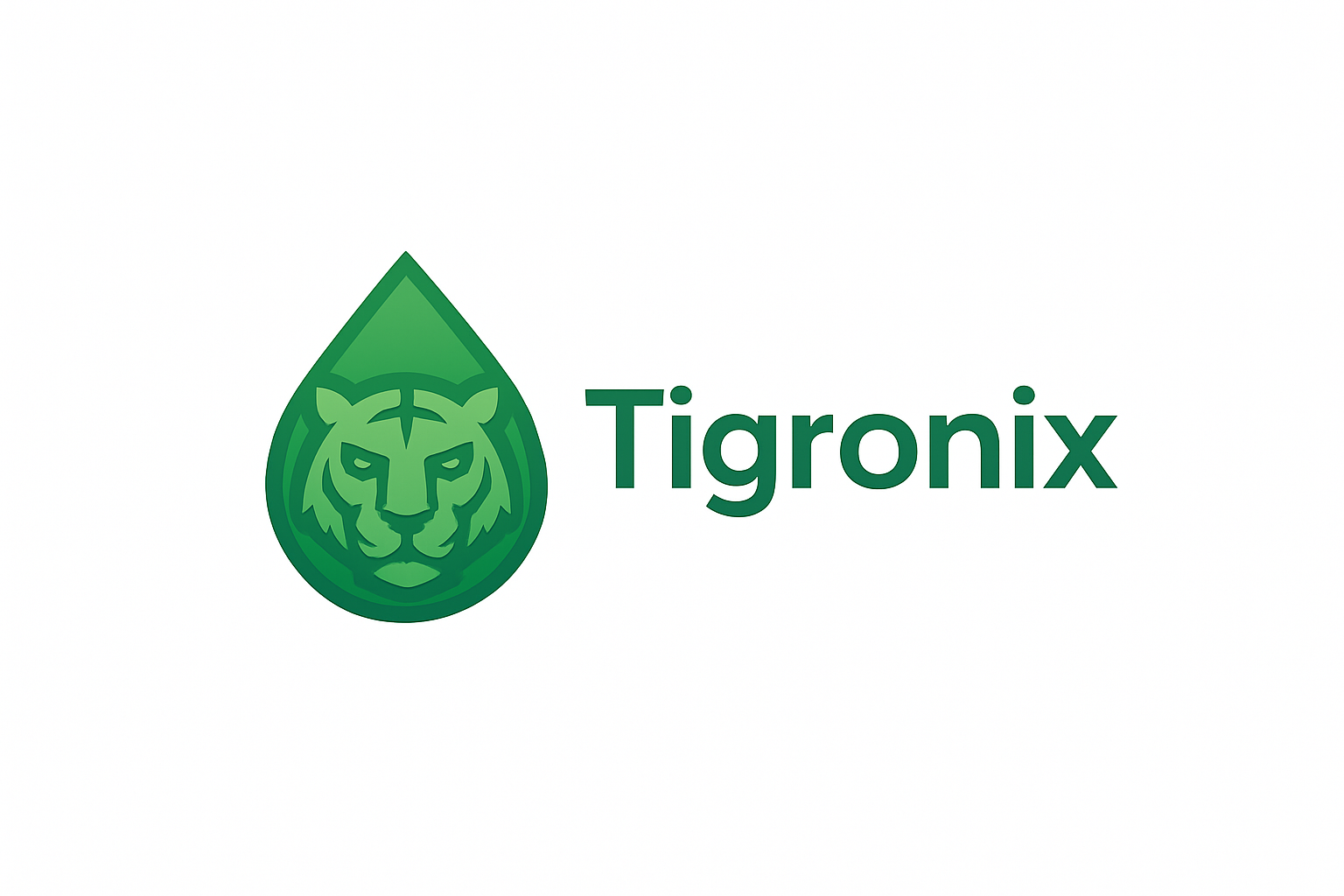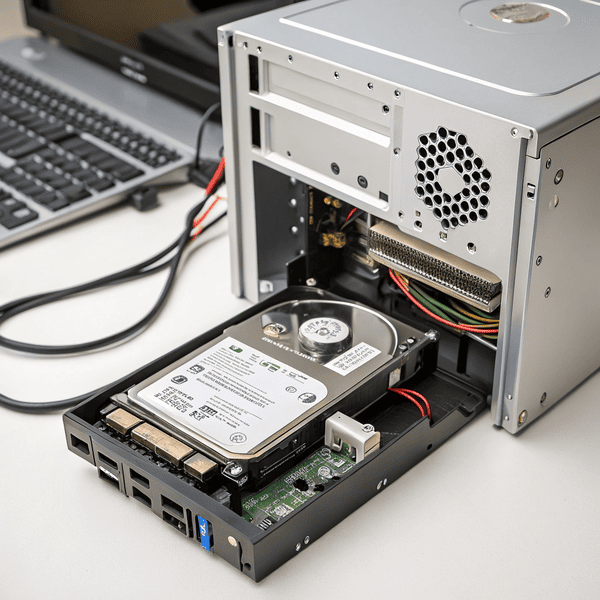Many people assume a hard drive is just a hard drive, so why not use a server model in your home PC? The truth reveals some big surprises.
Server hard drives can work in PCs, but differences in interfaces, noise, compatibility, and power requirements often make them a poor fit for home computers without extra setup.
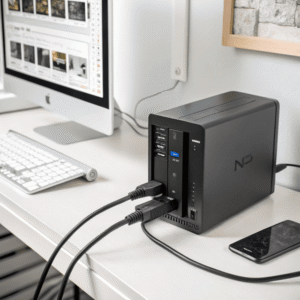
I once thought using extra drives from work could save me money at home. After plugging a I once thought using extra drives[^1] from work could save me money at home. After plugging a server hard drive into my own computer and hearing it roar to life like a jet engine, I realized there’s more to the story. Let’s break down these differences and what you need to know.
[^1]: Discover how utilizing extra drives can be a cost-effective solution for your home storage needs.
into my own computer and hearing it roar to life like a jet engine, I realized there’s more to the story. Let’s break down these differences and what you need to know.
Can I use server HDD in PC?
It seems simple to install a server hard drive in a home PC when you need more space. The reality is not always so smooth.
Most server HDDs use enterprise interfaces (like SAS), different power connections, and are often much noisier than regular desktop drives, requiring special adapters or settings in most PCs.
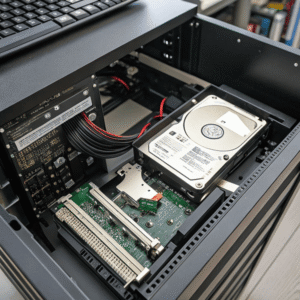

Server hard drives are designed for heavy use, with features like error correction and high durability. Yet, their interfaces often don’t match home computers, which typically use the SATA standard. Here’s a simple chart that compares the two:
| Feature | Server HDD | Home PC HDD |
|---|---|---|
| Interface | SAS or SATA | SATA |
| Noise | High | Low |
| Power consumption | High | Moderate |
| Heat output | High | Low/Moderate |
| Reliability | Very high | Standard |
When I attempted to reuse a SAS server drive at home, my PC BIOS couldn’t detect it, leading me down a rabbit hole of adapters and settings. Even after that, the constant loud hum and heat eventually pushed me back to traditional desktop drives. These issues mean it’s rarely plug-and-play.
Is it okay to use a NAS drive in a PC?
Some people have NAS (Network Attached Storage) drives left over from upgrades and wonder if they could be used in regular computers too.
NAS drives will run in a regular PC because they use the same SATA interface, but they cost more and offer performance features meant for network storage, not desktops.

NAS drives are balanced for 24/7 use, NAS drives are balanced for 24/7 use, vibration resistance, and multi-user access[^1]. That sounds good, but for most home users, those features don’t translate into clear benefits
[^1]: Exploring multi-user access features can enhance your home network setup, allowing multiple devices to share and access data seamlessly.
, and multi-user access. That sounds good, but for most home users, those features don’t translate into clear benefits. They’re also more expensive than typical desktop models. Here’s how they stack up:
| Feature | NAS HDD | Desktop HDD |
|---|---|---|
| Intended use | Multi-user/network | Personal use |
| Price | Higher | Lower |
| Reliability | Higher (24/7) | Good (daily use) |
| Noise | Moderate | Low |
| Compatibility | Very good (SATA) | Excellent (SATA) |
I once used a spare NAS drive in my CAD design workstation, expecting better performance. In reality, it worked just like a normal drive, but cost me more for features I never really used. Unless you need round-the-clock operation, a regular desktop HDD is the smarter choice.
Can I use a NAS hard drive as a regular drive?
It’s tempting to repurpose NAS drives left from upgrades or replaced devices. But do those enterprise features help everyday work?
NAS hard drives can be used as regular internal drives in PCs or laptops if the connectors match. But higher cost and extra features don’t benefit average home tasks.
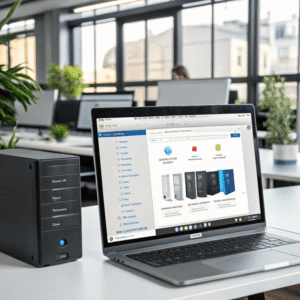
NAS drives excel when used in network storage boxes accessed by many users at once. They are built forNAS drives excel when used in network storage boxes[^1] accessed by many users at once. They are built for RAID setups and vibration-heavy environments, meaning you can trust them to last longer under constant strain
[^1]: Explore this link to understand how network storage boxes enhance data accessibility and collaboration for multiple users.
and vibration-heavy environments, meaning you can trust them to last longer under constant strain. But for a single user at home, those benefits are mostly overkill. Here are the main points to consider:
| What Works | What Could Be a Problem |
|---|---|
| SATA connector fits your device | Higher power and heat than normal drives |
| Reliable, long lifespan | Features like vibration resistance offer little help alone |
| Can use as a normal data or system drive | High cost for little performance gain in home use |
I put a NAS drive in my family’s media PC, and it worked fine for videos and backups, but it was louder and cost more. For most home setups, standard drives are enough, unless you already have a NAS drive you want to re-use.
Conclusion
While you can use server and NAS drives in regular computers, practical issues like interface, noise, and cost make desktop drives a better fit for most users.
